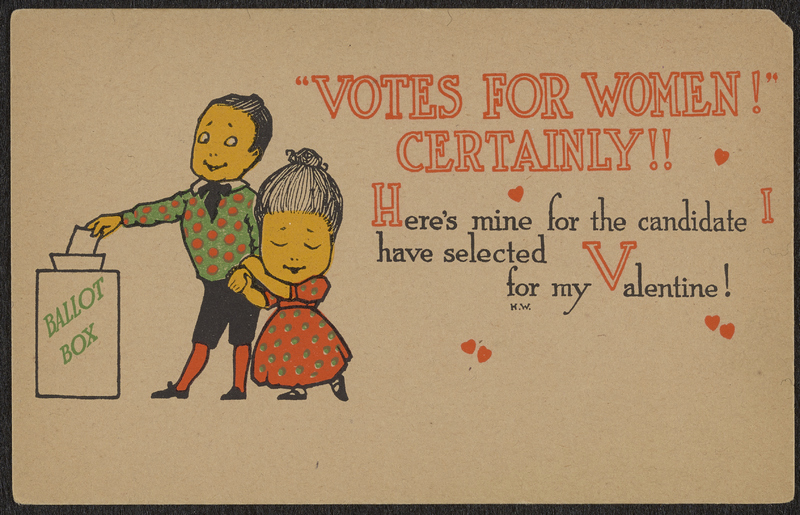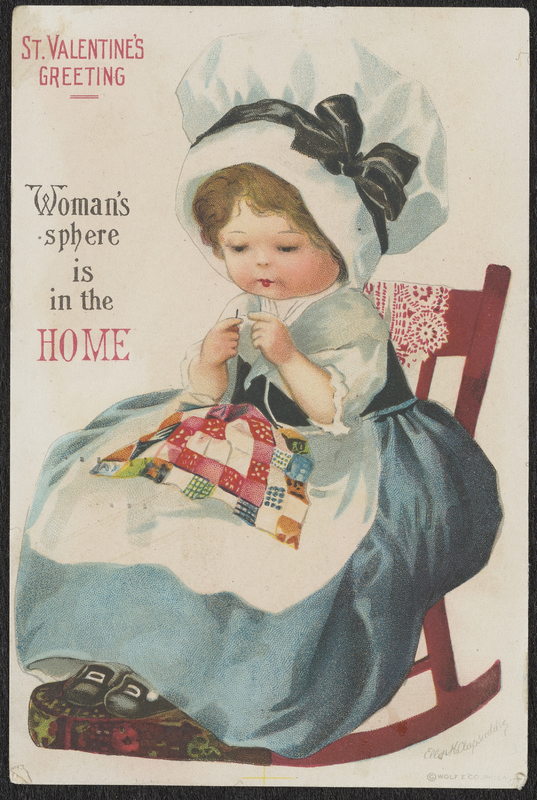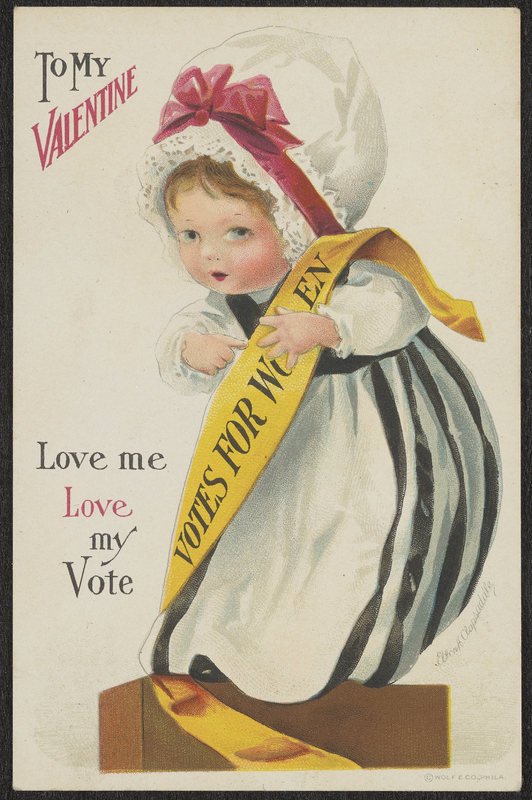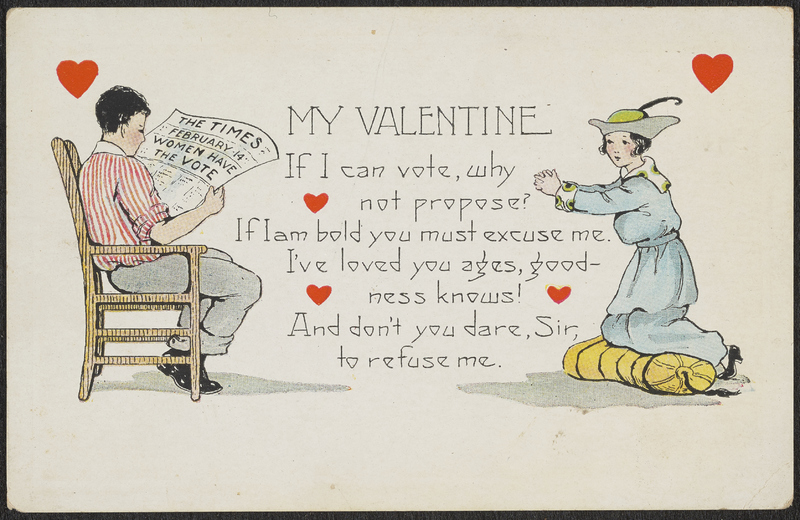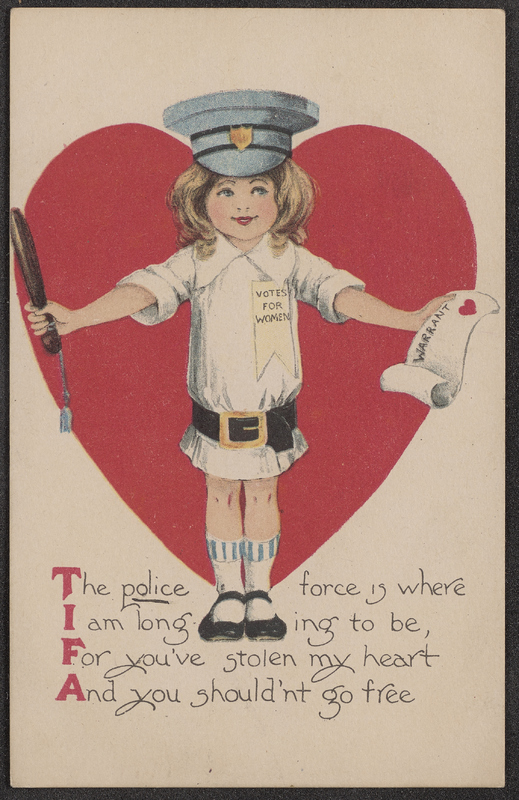Suffrage and Valentines
In this collection of postcards, the theme of women’s suffrage is incorporated into Valentine’s Day greetings. It’s interesting to see that some of the cards are pro-suffrage while some are not, indicating the mixed opinions towards the enfranchisement of women at that time. These postcards are well-drawn with aesthetic value, and smartly embed symbols for pro- or anti-suffrage messaging.
Sophia Xu, curator
